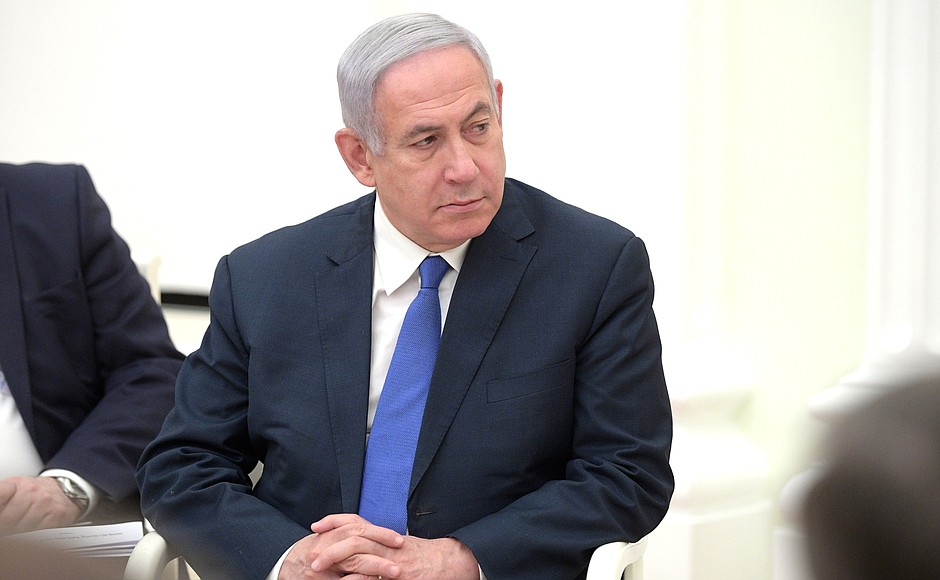The Israeli Supreme Court Checks COVID-19 Electronic Surveillance
The court invoked the nondelegation doctrine to require explicit statutory authorization of electronic surveillance.

Can the Israeli executive continue to authorize the state’s internal security service to conduct electronic contact tracing of COVID-19 patients without statutory authorization? On April 26, the Supreme Court of Israel said no. The court held in Ben Meir v. Prime Minister that executive authorization of the program without explicit statutory authority violated the nondelegation doctrine as it applies in Israel.
The decision is remarkable because of the court’s willingness to potentially pull the plug on what the government has portrayed as a key public safety program in the middle of a national and global emergency. At the same time, the decision also offers concessions to the government. The court opted for a broad definition of “national security” to determine when the government can deploy the internal security service, the Israeli Security Agency (ISA), to address a domestic crisis. It also largely avoided imposing any binding legal constraints on the appropriate trade-off between privacy and public safety in ISA domestic COVID-19 surveillance.
Electronic Surveillance and the COVID-19 Emergency
When the coronavirus crisis struck, Israel was in the throes of a prolonged political and constitutional stalemate. A third round of elections in one year had just ended without a definitive outcome; Israel was (and remains) governed by a caretaker government in the absence of a coalition with the confidence of parliament; and the legislature, the Knesset, was in a transitional period that impaired its ability to act. When the first cases of COVID-19 appeared in Israel, the government acted swiftly. It relied primarily on its authority, enshrined in Basic Law: The Government, to issue emergency regulations “to defend the state, public safety and the provision of essential products and services.” Emergency regulations supersede existing law, and the executive power to issue emergency regulations is exceptionally broad.
In the early stages of the crisis, the government took advantage of the Knesset’s paralysis to unilaterally issue emergency regulations that empowered the ISA—a national security agency that normally deals with terrorism and foreign threats, not “civilian” domestic matters—to conduct electronic surveillance in order to trace the contacts of COVID-19 patients. The surveillance authority initially extended not only to confirmed COVID-19 patients but also to suspected patients and their contacts.
Many critics voiced concerns over the potential abuse and overreach enabled by allowing a national security agency to deploy mass surveillance tools designed for counterintelligence and disrupting terrorist plots against the citizenry without consent. And the political context of a caretaker government and a leader under indictment fighting for survival did nothing to alleviate these worries.
In the first round of litigation at the Supreme Court, the court stopped short of addressing the substance of the regulations. However, it required that the government put in place parliamentary oversight if it was to continue to rely on the regulations to conduct electronic surveillance. Subsequently, the relevant Knesset committee—which was not yet formed when the court ruled—was convened, and its input was incorporated into a new, somewhat watered-down version of the regulations approved through a government resolution.
A few weeks later, however, the court held that the government lacked authority to continue to conduct COVID-19 surveillance under the regulations on its own authority without explicit statutory authorization. It found that use of emergency regulations with parliamentary committee input was appropriate during the first weeks of the crisis, when the scope of the threat was unknown and there was an urgent need to prevent further spread of the coronavirus. But now that the government appears to be in control of the virus’s spread, the court concluded, emergency regulations could no longer suffice. (As of May 4, Israel had a total of 16,246 reported cases and 235 deaths since late February.)
In search of statutory authorization, the court first explored whether the ISA Law, which outlines the role and powers of the agency, authorizes the government to use the ISA for COVID-19 surveillance. This required the court to determine whether the definition of the ISA’s role in Section 7(a) of the ISA Law extended to public health emergencies. Section 7(a) provides that the ISA’s responsibilities include a number of traditional national security tasks: defending Israeli security and democracy against terrorist threats, sabotage, subversion and espionage. But it also empowers the ISA to “protect and advance other essential national security interests” as determined by the government.
Adopting a broad definition of national security, the court found that Section 7(a) covers public health emergencies such as the coronavirus pandemic. It held that in exigent circumstances that threaten public safety or the functioning of the state, protecting “national security” could require addressing a public health emergency and justify participation of the states’ national security organs in combating the threat. The court drew on U.S. conceptions of national security in recent years to demonstrate that the category has been expanded to nontraditional threats such as cybersecurity, natural disasters, drug trafficking, natural resource protection and pandemics.
At the same time, the court emphasized that the further away from the core of “national security” a threat is, the greater the government’s burden to justify ISA participation. It also underscored that the threat must be immediate, and that the ISA should be tapped for this task if there are no other effective means available for addressing the threat.
National Security and the Nondelegation Doctrine
Although the court concluded that the ISA Law allowed the government to deploy the ISA to address a global pandemic, it held that at this point in the crisis, that general authority no longer sufficed to authorize intrusive electronic surveillance. While the government acted lawfully in sanctioning ISA surveillance during the first weeks of the crisis, circumstances have now changed, the court found. Parliament has had time to deliberate and is in a position to produce authorizing legislation. The court invoked the nondelegation doctrine—the principle that the key parameters for the exercise of administrative discretion must be provided for in primary legislation—to require explicit statutory authorization of electronic surveillance.
The fact that Israel is governed by a caretaker government, the court argued, highlighted the need for explicit statutory authorization. A caretaker government does not enjoy the confidence of parliament and has limited authorities compared to an ordinary government. The court allowed the government several weeks to pursue legislation before further reliance on the surveillance guidelines becomes prohibited. While it was not clear at first whether the government intended to pursue legislation, it appears that it has decided to do so. The government requested the relevant Knesset committee to extend the current regulations by an additional six weeks and began work on a legislative proposal.
This is not the first time the Supreme Court has invoked the nondelegation doctrine to constrain executive national security powers. In fact, three out of a handful of cases in which the doctrine has been invoked in modern Supreme Court case law, including Ben Meir, relate to national security. In the famous 1999 Public Committee Against Torture judgment, which prohibited ex ante authorization of violent interrogation techniques in ISA interrogations through administrative guidelines, the court held that if the government wished to make these interrogation methods available to the ISA, it should pursue legislation to that effect in the Knesset. The Knesset subsequently passed the ISA Law to enshrine the role and powers of the agency, but the legislation is laden with gaps and ambiguities and ultimately failed to address the thorny issue of interrogation methods. Another nondelegation case, Rubinstein v. Minister of Defense, also involved a national security matter, albeit from an equality and religious liberties perspective. In that case, the court required legislation to sanction religious exemptions from mandatory military service for ultraorthodox youths.
It is interesting to compare the Israeli court’s invocation of the nondelegation doctrine with the U.S. Supreme Court’s stance on this issue. The Israeli Supreme Court invokes the doctrine primarily to constrain national security powers. In contrast to the Israeli approach, U.S. Supreme Court justices who have expressed support for reviving the nondelegation doctrine in the U.S. have seemed to exclude national security from the doctrine’s purview.
For instance, in his dissent in Gundy v. United States, Justice Neil Gorsuch—a proponent of the nondelegation doctrine—implied that delegation of broad discretion to the executive in foreign affairs could be tolerated. Chief Justice John Roberts’s opinion for the court in Trump v. Hawaii similarly accepted a broad delegation of authority to the president in the Immigration and Nationality Act to impose an entry ban on certain classes of individuals on purported national security grounds. These recent decisions continue a long line of case law—including the maligned yet ubiquitous United States v. Curtiss-Wright—that has sanctioned extremely broad delegations of authority in the foreign affairs and national security context. (Harlan Cohen insightfully analyzed the asymmetry between the permissive approach to delegations in the foreign affairs and national security context and the burgeoning nostalgia of late for the nondelegation doctrine in domestic policy.)
The Israeli court’s invocation of the nondelegation doctrine in the national security context is the mirror image of the U.S. approach. This is not to say that the Israeli approach is right for the U.S., given the differences between the constitutional systems and security environments of the two countries. But the difference is nevertheless worth highlighting, especially considering that the Israeli Supreme Court is typically highly deferential to the government on foreign affairs and national security matters. Israeli nondelegation case law suggests that some decisions even in the national security context—such as the resort to violent interrogation methods in terrorism investigations, sharing the social burden of military service and allowing precedential electronic surveillance in the domestic realm—require broader deliberation and political participation than unilateral executive action allows.
Relying on the nondelegation doctrine is also a way for the court to kick hot potatoes to the legislature in situations in which the government insists that its actions are essential for public safety. This way, if the government fails to secure parliamentary authorization, the court will not shoulder all the blame for depriving it of certain tools and potential harmful consequences of such judicially imposed restrictions on the government’s freedom of action.
What Comes Next?
At first blush, the court’s reliance on a largely procedural doctrine like nondelegation to constrain government application of ISA surveillance and reduce harm to civil liberties might appear to be an elegant solution. Yet it also has a major downside. Is it wise to enshrine an extraordinary measure like deploying ISA surveillance in the domestic realm against law-abiding citizens in legislation? Wouldn’t that normalize this extreme measure and create a precedent for the future? Wouldn’t it be wiser to leave the practice on a temporary, exceptional, emergency footing than to enshrine it in statute?
The court touched on this point briefly without assigning it too much weight. It noted that any concerns related to precedent-setting could be mitigated through the use of temporary legislation that would sunset once the COVID-19 emergency abates. However, as Ittai Bar-Siman-Tov and Gaya Harari Heit have argued, temporary legislation in Israel—including in the national security context—has a tendency to be extended, sometimes repeatedly. Experts predict that the COVID-19 crisis will take months if not years to resolve, increasing the risk that ISA domestic surveillance would become normalized.
Then there is the political context. Prime Minister Benjamin Netanyahu has consolidated power by disbanding the major opposition party and reaching an agreement to form a unity government with several of its factions. He has been indicted for corruption and is facing a criminal trial. These factors create a heightened risk of abuse and efforts to perpetuate and gradually expand domestic surveillance authority beyond COVID-19 through long-term legislation.
It remains to be seen whether, on balance, the court’s middle ground holding was riskier than it seems. Time will tell if the decision contributes to greater protection of individual liberties and curbs domestic surveillance by a national security agency—or whether it was the first step onto a slippery slope.





